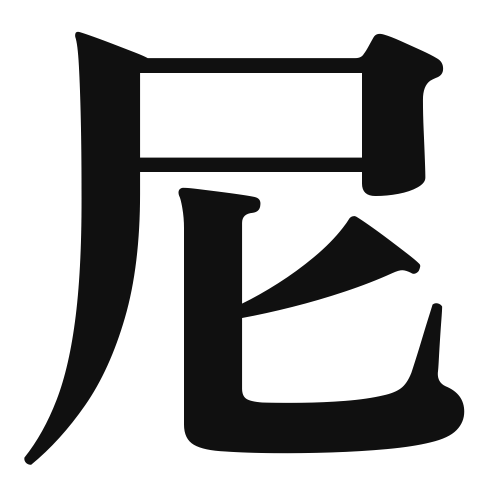1. Overview of Meaning
The kanji “尼” (pronounced “ni”) primarily means “nun” or “female monk.” It is often associated with Buddhist practices and represents a woman who has dedicated her life to spiritual pursuits.
2. Formation and Radical
Formation of the Kanji: The kanji “尼” is a phonetic-ideographic character. It combines elements that convey both sound and meaning. The left side of the character is a radical that suggests a connection to women, while the right side indicates a phonetic component.
Radical: The radical for “尼” is 女 (onna), which means “woman.” This radical is commonly found in kanji related to female figures.
3. Examples of Usage
Common Words and Phrases:
- 尼僧 (にそう, nisou) – nun
- 尼寺 (にでら, nidera) – nunnery
Example Sentences in Daily Conversation:
- 彼女は尼僧としての生活を選びました。 (かのじょはにそうとしてのせいかつをえらびました。) – She chose a life as a nun.
- 尼寺は静かな場所です。 (にでらはしずかなばしょです。) – The nunnery is a quiet place.
4. Synonyms and Antonyms
Similar Kanji:
- 女 (おんな, onna) – woman; this kanji is broader and refers to any female, not specifically a nun.
- 僧 (そう, sou) – monk; this term refers to male monks and is used in a similar religious context.
Antonyms:
- 男 (おとこ, otoko) – man; this kanji represents the male gender, contrasting with “尼” which refers to females.
5. Cultural and Historical Background
Connection to Japanese Culture: The concept of “尼” is deeply rooted in Japanese Buddhism, where female monks play a significant role in spiritual communities. Nuns often engage in meditation, teaching, and community service.
Proverbs and Idioms:
- 「尼の一言」 (にのいちごん, ni no ichigon) – A nun’s word; this phrase emphasizes the weight and importance of a woman’s words, particularly in a spiritual context.
